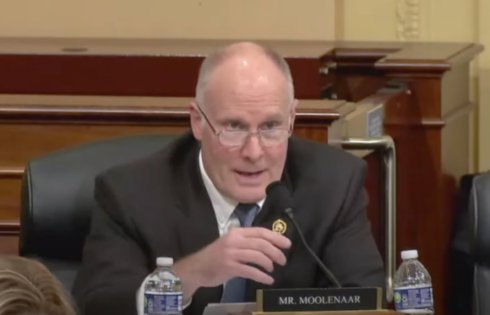
Only $2,500 to look at our ‘library’
The Obama administration was a boon to the nascent industry of Title IX consultants who charged colleges a small fortune to review and revise their policies and practices around sexual-misconduct investigations in the wake of 2011’s infamous “Dear Colleague” letter.
That’s all at risk under the Trump administration, The Chronicle of Higher Education reports:
“There has to be some level of concern in the industry that the current go-go business model might not be as viable in the future,” said Robb Jones, senior vice president and general counsel for claims management at United Educators, a risk-management and insurance firm.
The article opens with an eye-popping figure: The University of Virginia spent half a million dollars on a single law firm to investigate how it handled the soon-discredited gang-rape allegations by Jackie Coakley that Rolling Stone “reported” with no scrutiny.
It spent another $660 and $550 per hour for two lawyers from a different law firm “to help revise campus policies in the wake of the article and to advise on the university’s response to a continuing federal investigation.”
And it’s still paying their firm, Philadelphia’s Pepper Hamilton, two years later for “related services.”
Sen. Lamar Alexander of Tennessee, who chairs the committee that oversees education policy, has complained about the “Mount Vesuvius” of regulations imposed on colleges, and he’ll surely take interest in these figures:
Campuses typically don’t pay for just one service at a time. They might bring in one set of consultants that costs hundreds of dollars an hour to field requests from the [Department of Education’s] Office for Civil Rights. Then they might turn to other consultants for on-campus Title IX workshops, which can cost thousands of dollars a day. And they might send campus Title IX staff members to training sessions that usually cost more than $1,000 per person.
MORE: Education official SHREDDED for lawless overreach in Senate hearing (VIDEO)
They also spend money on Title IX training and compliance companies, including CampusClarity, Campus Answers and SafeColleges. (CampusClarity got caught asking students about their sex lives in a Clemson University mandatory training module.)
OCR’s “Dear Colleague” letter, which lawlessly threatened colleges’ federal funding if they didn’t adopt low evidence standards and rip away common procedural protections for accused students, was pretty much a money machine for firms like Brett Sokolow’s NCHERM Group (née National Center for Higher Education Risk Management):
For more than a decade, Mr. Sokolow said, he tried to tell colleges that they had an obligation under Title IX to address sexual misconduct. But few institutions would listen. Mr. Sokolow said they thought he was just trying to scare them to promote his business.
After the “Dear Colleague” letter came out, however, Mr. Sokolow’s phone started ringing. …
That shift has been good for business at Ncherm, which has seen its staff double in size since 2011. On average, Mr. Sokolow said, his institutional Title IX clients pay Ncherm about $35,000 per year.
Sokolow and his firm were called “Title IX profiteers” by a women’s and gender studies coordinator who noted in 2014 that most of its client list was under Title IX investigation, though Sokolow says its “long-term campus clients” weren’t under investigation for any case his firm worked on.
MORE: Clemson stops making students dish on their sex lives to Title IX provider
Sokolow and his merry band of 2,500 extortionists at the Association of Title IX Administrators (another group he founded) now charge $599 (individuals) and $2,499 (institutions) for access to “an extensive online library of training materials and templates for model policies”:
Mr. Sokolow estimated that a campus can defend itself against a Title IX inquiry for about $25,000, though “I’ve had clients who have spent $600,000.”
Among the obligations outlined in recent federal guidance is that each institution must designate a Title IX coordinator. As that role has become professionalized, there has also been a growing need to educate both the coordinators and other campus employees with Title IX-related responsibilities. One of the most popular trainings is offered by Atixa. The group’s four-day training is $2,699 per person, plus travel, and can attract as many as 500 participants.
He doesn’t think Title IX spending is headed for free-fall because “changing a college or university is like turning a cruise ship.”
Consultant Peter Lake sees plenty of business emanating from other federal directives, such as the Family Educational Rights and Privacy Act, and he even posits that a Trump administration focus on free speech could provide a “whole new compliance gap for consultants and vendors to fill.”
One major factual error by Chronicle reporter Sarah Brown: Critics of the “preponderance” evidence standard imposed by Obama’s OCR are not asking for a recommended standard of “beyond a reasonable doubt.”
Some, like the Foundation for Individual Rights in Education, favor the “clear and convincing” (or “persuasive”) standard, generally understood as 75-percent certainty (used by Princeton among others before OCR’s threats).
But the bigger problem that FIRE has highlighted is the absence of other procedural protections in Obama-era campus proceedings: the right to cross-examination, see all evidence and retain a lawyer who can actively participate, as well as not be subject to double jeopardy.
MORE: Judge sides with student in double-jeopardy kangaroo court case
Like The College Fix on Facebook / Follow us on Twitter
IMAGE: Paolo_Schorli/Shutterstock






Please join the conversation about our stories on Facebook, Twitter, Instagram, Reddit, MeWe, Rumble, Gab, Minds and Gettr.